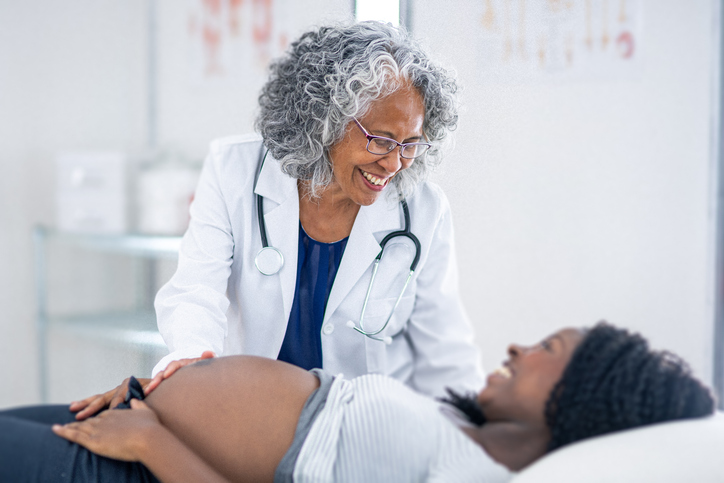Mother’s Day: Mapping Where The Best Black Maternal Health Care Is In The U.S.
Source: Fly View Productions / Getty
This year’s installment of Mother’s Day ironically comes as women’s reproductive rights are under attack as a growing number of states enact increasingly restrictive laws governing women’s health care.
With data confirming that Black mothers disproportionately experience unexpected newborn complications, it’s not hard to tell who is affected most amid the sweeping legislative efforts that have wide-ranging outcomes.
MORE: Seven Ways Racism Harms Pregnant Black Women
Just last week, Florida – where nearly 20% of females aged 15 to 44 are Black – enacted a ban on abortions for women who are more than six weeks pregnant. Florida is among the mostly southern states – where 38% of all Black people in the U.S. call home – putting such laws on the books, increasing the chances of Black women being affected.
And earlier this month, an anti-DEI bill in North Carolina targeting federally-funded medical schools sparked fears that its passage could have a detrimental effect on the work such institutions are doing to combat the Black maternal health crisis.
That phenomenon includes but is not limited to mental health, as studies show that 40% of Black birthing people experience maternal mental health symptoms but are less likely to receive treatment due to various barriers such as stigma, fear and low availability of services staffed by Black providers.
There are also thousands of Black women who remain unable to access high-quality postpartum care due to barriers such as Medicaid expansion limits after their pregnancies.
The overall numbers paint a harrowing picture, as Angela Grayson, the advocacy and outreach coordinator for The Lighthouse Black Girls Projects, reminded us in an op-ed she previously penned for NewsOne:
Black women experience more pregnancy complications and higher maternal mortality rates than white women. Black women are five times more likely to report having unmet postpartum needs and twice as likely to report having postpartum depression compared to white mothers. Having higher education and income does not protect Black women from tragic pregnancy and postpartum outcomes. It remains a race and gender issue.
In fact, maternal death rates have doubled among Black women over the last 20 years.
But amid this Mother’s Day, not all is lost as there are still some states that offer support systems that specifically pertain to Black maternal health and work to foster Black motherhood.
Below is a state-by-state, county-by-county mapping tool informed by data compiled by the Health Resources and Services Administration, Maternal and Child Health Bureau, showing where and how Black women seek maternal health support in the U.S.
In addition, U.S. News & World Report has identified the top-performing maternity care hospitals dedicated to supporting Black maternal health. Twenty-six hospitals across 13 states deliver outstanding outcomes for cesarean sections and managing unexpected newborn complications specifically for Black patients, the news outlet found.
North Carolina reigned supreme with the highest number of distinguished hospitals, boasting six facilities that have excelled in managing cesarean sections and unforeseen newborn complications among Black patients.
The data on cesarean-section deliveries is important because Black women are frequently advised to opt for the procedure as a precaution against complications during vaginal delivery. The resulting bleeding and hemorrhaging from the surgery pose potential fatal health hazards. Open Democracy reported that Black women undergo cesarean sections at a rate 35.9% higher than white women. However, when performed safely and meticulously, this procedure could also prove life-saving for both the mother and child.
Dr. Allison Bryant, a co-author behind the study, used state-by-state data compiled from 2009 to 2019 to assess the growing problem. She argued that “structural” and historical “racism” may be to blame for the health crisis. However, Dr. Gregory Roth, another co-author behind the eye-opening study, claimed that environmental factors could be driving the maternal health crisis. The University of Washington official said that pregnancy-related deaths are worsening in places where people are known to have “better health.”
View the complete list of hospitals here.
This is America.
SEE ALSO:
Black Maternal Health: Notable Groups That Are Working On Behalf Of Mothers Of Color
Acknowledging Black Midwives As An Essential Part Of Black Maternal Healthcare
The post Mother’s Day: Mapping Where The Best Black Maternal Health Care Is In The U.S. appeared first on NewsOne.

